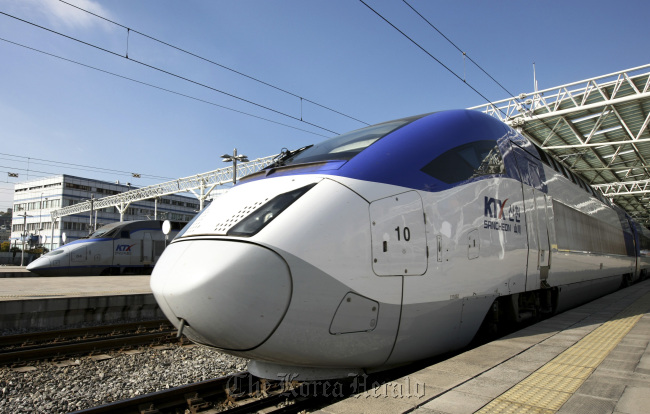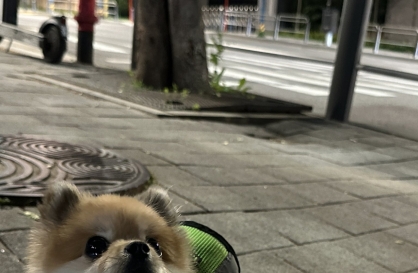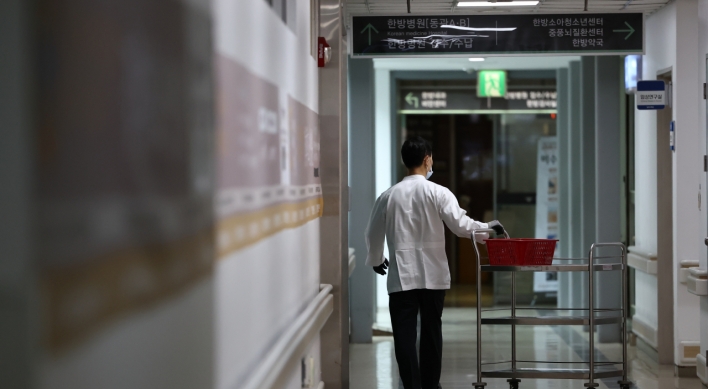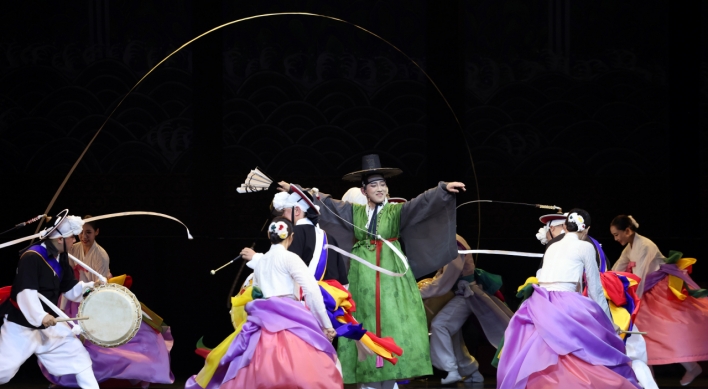Public projects may face review under Park
President-elect likely to retain four-river project but reconsider privatization plans for public organizations
By Korea HeraldPublished : Dec. 20, 2012 - 20:04
Park Geun-hye’s election to president is expected to see changes in key projects that have been pushed under the Lee Myung-bak administration.
During her campaign, Park tried to distance herself as far as possible from the unpopular incumbent president.
Industry watchers predict major revisions to controversial projects, while some policies could be maintained in line with the ruling Saenuri Party’s political direction.
The Four River Restoration project, arguably President Lee’s most controversial undertaking, is likely to continue without a major policy shift.
Unlike opposition challenger Moon Jae-in of the Democratic United Party, who urged a re-examination of the 22-trillion won river project, Park hasn’t made any formal pledge yet on the issue.
At the final presidential debate on Sunday, she hinted that more time would be needed to evaluate the effectiveness of the project.
“I know several problems are raised regarding the river project. But we need more time to consider before removing new facilities such as reservoirs,” she said.
The Saenuri Party has also opposed a review of the project as demanded by opposition parties and civic groups, who want a safety investigation undertaken by representatives of ruling and opposition parties, the Ministry of Land, Transport and Maritime Affairs and experts.
The president-elect, however, is expected to put the brakes on the current government’s ongoing efforts to privatize state-run companies with the aim of increasing service quality and management efficiency.
During her campaign, Park tried to distance herself as far as possible from the unpopular incumbent president.
Industry watchers predict major revisions to controversial projects, while some policies could be maintained in line with the ruling Saenuri Party’s political direction.
The Four River Restoration project, arguably President Lee’s most controversial undertaking, is likely to continue without a major policy shift.
Unlike opposition challenger Moon Jae-in of the Democratic United Party, who urged a re-examination of the 22-trillion won river project, Park hasn’t made any formal pledge yet on the issue.
At the final presidential debate on Sunday, she hinted that more time would be needed to evaluate the effectiveness of the project.
“I know several problems are raised regarding the river project. But we need more time to consider before removing new facilities such as reservoirs,” she said.
The Saenuri Party has also opposed a review of the project as demanded by opposition parties and civic groups, who want a safety investigation undertaken by representatives of ruling and opposition parties, the Ministry of Land, Transport and Maritime Affairs and experts.
The president-elect, however, is expected to put the brakes on the current government’s ongoing efforts to privatize state-run companies with the aim of increasing service quality and management efficiency.

One of the pending issues is the nation’s bullet train KTX, which has been operated exclusively by the state-run railroad operator Korail.
In August, the government planned to select a private operator for KTX trains running the new Suseo-Busan line that will be completed by 2015. The plan, however, was delayed as opposition parties resisted the move, citing the possibility of fare hikes.
Even though the government is still considering resuming related talks with the transition committee of the incoming government, Park made it clear that any national project should earn people’s understanding.
“She affirmed privatization of public companies should not be carried out in the name of efficiency without people’s agreement,” said Kim Jong-in, Park’s top economic advisor.
Park also expressed caution over the controversial privatization of Incheon International Airport.
The government did not submit a revised bill for the sale of its stake in Incheon Airport to the regular National Assembly session in September as the bill was met with a strong political backlash ahead of the presidential election.
Industry sources, however, say there is always room for resumption of privatization talks as Park has yet to announce her clear opposition to any specific privatizations.
In the meantime, the new airport project in the nation’s southeastern “Dongnam” region, including Busan, Ulsan, Daegu and the Gyeongsang provinces, is set to be carried out under the incoming government.
The government ditched the new airport plan due to conflicting interests of each candidate region.
Park, however, has pledged to build a new airport in the region, with Busan’s Gadeok-do considered the most favorable site.
“Gadeok-do is the best site. I promise to build a new airport that Busan citizens have long aspired for,” she said at a campaign stop in Busan.
Political disputes are likely in the early stages of her presidency as she highlighted the result of a feasibility test for a new airport when she toured Daegu and North Gyeongsang Province, her political hometown.
By Lee Ji-yoon (jylee@heraldcorp.com)
-
Articles by Korea Herald











![[Herald Interview] Director of 'Goodbye Earth' aimed to ask how we would face apocalypse](http://res.heraldm.com/phpwas/restmb_idxmake.php?idx=644&simg=/content/image/2024/05/03/20240503050732_0.jpg&u=)







